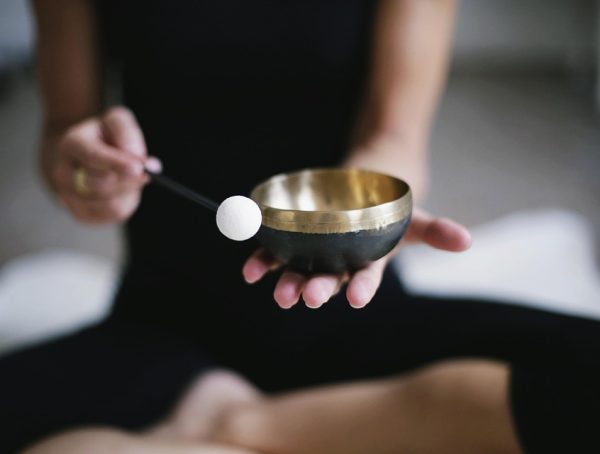The Ultimate Guide to the 20 Health Benefits of Meditation
In our fast-paced world, finding moments of peace and introspection can seem like a daunting task. However, the practice of meditation offers a pathway to mental clarity and emotional stability. With scientific studies backing its benefits, meditation has become a popular practice globally due to its extensive health advantages. Let’s explore 20 remarkable health benefits of meditation along with actionable steps you can take to integrate this transformative practice into your daily life.
1. Reduces Stress
One of the most well-known benefits of meditation is its ability to reduce stress levels. Research shows that mindfulness meditation activates the relaxation response, which helps lower cortisol, the stress hormone.
Action Step: Start with a simple five-minute mindfulness meditation each morning. Focus on your breath and let go of any racing thoughts.
2. Promotes Emotional Health
Regular meditation can lead to long-term improvements in emotional health by cultivating a deeper sense of inner peace and reducing feelings of anxiety and depression.
Action Step: Incorporate loving-kindness meditation where you silently repeat kind wishes for yourself and others.
3. Enhances Self-Awareness
Meditation fosters greater self-awareness, helping you understand your thoughts and emotions better. This self-awareness can aid in personal growth and transformation.
Action Step: Take 10 minutes a day to reflect on your emotions and thoughts, using guided meditations focused on self-discovery.
4. Improves Focus and Concentration
Studies have shown that meditation enhances attention span and concentration, which can lead to increased productivity in both personal and professional endeavors.
Action Step: Practice focused attention meditation. Set a timer for 10 minutes and concentrate solely on your breath, returning your focus whenever your mind wanders.
5. Encourages a Healthy Lifestyle
Meditation can increase your desire to take care of your body through better nutrition, exercise, and self-care practices.
Action Step: Engage in mindful eating by focusing on the taste, texture, and nutritional value of the foods you consume.
6. Enhances Sleep Quality
Trouble sleeping? Meditation can calm the mind and body, promoting better sleep quality and helping you fall asleep faster.
Action Step: Try body scan meditation before bed to promote relaxation and prepare your mind for sleep.
7. Boosts Creativity
Meditation has been shown to increase creative thinking and problem-solving skills by allowing the mind to wander and think unconventionally.
Action Step: Set aside time for open-ended meditation; allow your thoughts to flow freely without judgment or direction.
8. Improves Relationships
Meditation fosters empathy, compassion, and improved communication, all of which contribute to healthier and more fulfilling relationships.
Action Step: Engage in partner-centered meditation, where you sit with a loved one and share loving-kindness intentions toward each other.
9. Reduces Anxiety
Regular meditation practice can significantly reduce anxiety levels, helping individuals manage stressors more effectively.
Action Step: Utilize anxiety-reducing techniques such as guided visualizations where you imagine calming and peaceful scenes.
10. Enhances Resilience
Meditation can increase your resilience to stress and challenges by providing tools to manage negative emotions and adversity.
Action Step: Reflect on past challenges during meditation, focusing on how you overcame them and what strengths you can draw upon in future difficulties.
11. Regulates Emotions
Meditation helps regulate emotions by providing a framework for acknowledging and expressing feelings without becoming overwhelmed.
Action Step: Implement emotional regulation techniques, such as journaling your feelings post-meditation.
12. Lowers Blood Pressure
Research has demonstrated that mindfulness and transcendental meditation can reduce blood pressure, benefiting heart health.
Action Step: Practice deep breathing exercises and visualization techniques centered around your heart during daily meditation.
13. Enhances Compassion
Meditation promotes self-compassion and a greater understanding of the suffering of others, which is vital for nurturing compassion in your daily life.
Action Step: Engage in a compassion-focused meditation, imagining extending love and care to those struggling around you.
14. Improves Memory Retention
Mindfulness practices can lead to improvements in memory and cognitive function, which is especially vital as we age.
Action Step: Spend a few minutes focusing on a memory each day, recalling details and feelings associated with it.
15. Inspires Mindful Living
Meditation cultivates a greater mindfulness of your daily activities, promoting a more intentional and peaceful life.
Action Step: Practice mindfulness in everyday tasks by fully engaging in activities like walking, eating, or even washing dishes.
16. Reduces Symptoms of Chronic Pain
Meditation has been shown to help manage chronic pain by altering the perception of pain and providing coping mechanisms.
Action Step: Explore body awareness meditations that focus on breathing into areas of discomfort or pain.
17. Enhances Intuition
Meditation fosters a greater sense of intuition, helping you listen to your inner voice and make more informed decisions.
Action Step: Spend time in silent meditation, paying attention to your gut feelings and instincts.
18. Strengthens the Immune System
Some studies suggest that regular meditation can boost the immune system, helping fight off illness and disease more effectively.
Action Step: Incorporate meditative breathing techniques that promote relaxation and vitality into your routine.
19. Fosters Emotional Balance
Meditation encourages emotional balance, helping you respond rather than react to life’s challenges.
Action Step: Use breath-focused meditation to center yourself during moments of emotional upheaval.
20. Encourages Mind-Body Connection
Meditation enhances the mind-body connection, leading to greater overall wellness and health awareness.
Action Step: Attend yoga classes that integrate meditation or practice mindful movement through Tai Chi or walking meditations.
Conclusion
With countless benefits that range from physical health improvements to emotional resilience, meditation serves as a powerful tool for personal transformation and growth. The key is not to overwhelm yourself; start small and gradually build your practice. Over time, you will begin to notice the positive changes and the peace that meditation can bring into your life.
As you embark on this journey toward greater well-being, remember:
"The mind is everything. What you think you become." — Buddha
For more tips and insights on leading a healthier, more fulfilling life, follow Kevin on Instagram @KSteineman!
You might also like
More from Meditation
The Role of Mantras in Transcendental Meditation: A Deep Dive
The Role of Mantras in Transcendental Meditation: A Deep Dive Transcendental Meditation (TM) has garnered a significant following across the globe, …
The Science Behind Meditation: Improving Mental Health Naturally
The Science Behind Meditation: Improving Mental Health Naturally In today's fast-paced world, the pursuit of mental wellness has become paramount. Thousands …
Understanding the 7 Types of Meditation for Beginners
Understanding the 7 Types of Meditation for Beginners: A Path to Inner Peace Meditation has become a popular practice in recent …


































